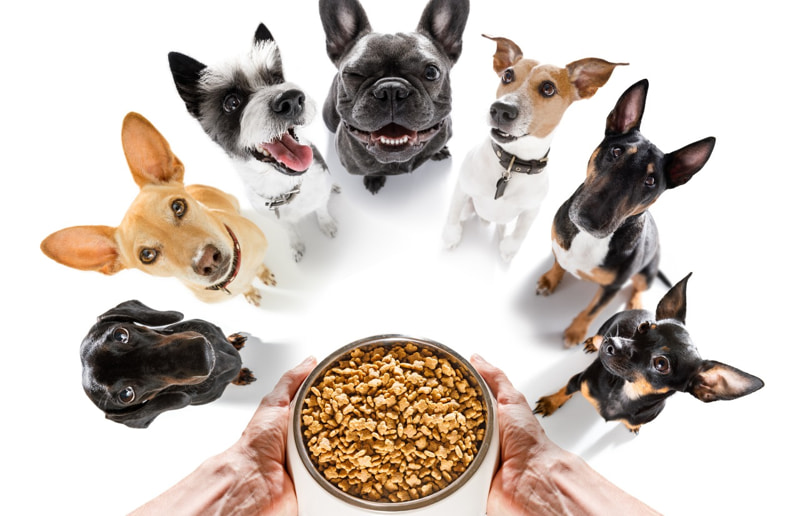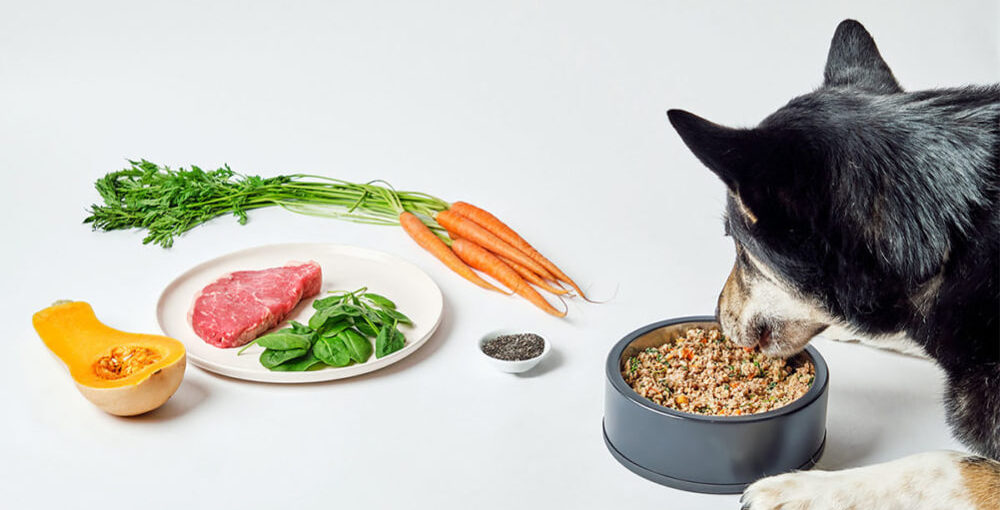As pet owners, one of the most important decisions we make is choosing the right food for our dogs. Just like humans, dogs need a balanced diet to maintain their health, energy, and happiness. One of the best ways to ensure that your dog receives high-quality nutrition is by switching to organic food. This food is made from natural ingredients, free from harmful chemicals, and packed with nutrients that help support your dog’s overall health. In this article, we will explore the benefits and how organic dog food can improve your dog’s health.
What Is Organic Dog Food?
Organic dog food is made from ingredients grown without synthetic pesticides, fertilizers, or genetically modified organisms (GMOs). It is produced using farming methods that adhere to organic standards, ensuring that it is free from harmful chemicals. Organic dog food typically contains organic meats, fruits, and vegetables, making it a healthier option for your pet.
Key Benefits of Organic Dog Food
Switching to organic dog food can bring many noticeable benefits to your pet’s health. From improved digestion to a shinier coat, organic food can significantly enhance your dog’s quality of life.
Improved Digestive Health
One of the first benefits of switching to organic food is improved digestion. Organic food eliminates artificial additives and preservatives that may upset your dog’s stomach. Natural ingredients, like whole grains and vegetables, provide more easily digestible fiber that supports a healthy gut.

Better Skin and Coat Condition
If your dog struggles with skin irritations or has a dull coat, organic food can help. It typically contains omega-3 fatty acids, vitamins, and minerals that nourish your dog’s skin and coat. Many dog owners report shinier coats, fewer rashes, and less itching after switching to organic options.
Increased Energy
Organic dog food is nutrient-dense, providing your dog with the energy needed to stay active and lively. By eliminating artificial additives, organic food offers a more natural, nutrient-rich diet. Ingredients like organic meats, vegetables, and fruits provide essential vitamins, minerals, and antioxidants, which help maintain healthy energy levels throughout the day.
Reduced Risk of Allergies
Many dogs suffer from food allergies due to ingredients commonly found in non-organic dog food, such as corn, soy, and artificial additives. Organic food eliminates many of these harmful ingredients and replaces them with natural, high-quality alternatives that are less likely to cause allergic reactions. Organic meats, vegetables, and grains are also more easily digestible, reducing the risk of allergies and sensitivities.

Long-Term Health Benefits
Feeding your dog organic food can have long-term health benefits. By avoiding harmful chemicals such as pesticides, herbicides, and GMOs, you reduce the toxic load on your dog’s body. Organic food helps boost your dog’s immune system and overall health, potentially contributing to a longer, healthier life. Rich in antioxidants and other nutrients, organic options protect your dog’s cells from oxidative damage and may reduce the risk of chronic diseases such as cancer, kidney disease, and heart disease.
How to Choose the Best Organic Dog Food
When choosing the best organic food for your pet, there are a few important factors to consider:
Look for Certification
To ensure the food is genuinely organic, look for certification from a reputable certification body. In the U.S., look for products certified by the USDA Organic program. This certification ensures that the food meets organic standards and is free from harmful chemicals.
Choose a Formula That Matches Your Dog’s Needs
Every dog has unique nutritional needs based on their age, size, activity level, and health condition. Choose an organic formula that suits your dog’s specific needs. Whether you’re feeding a puppy, adult dog, or senior dog, there are organic food options tailored to different life stages and dietary preferences.
Check the Ingredient List
When looking at organic dog food, always check the ingredient list. The food should contain high-quality protein sources such as organic chicken, beef, or lamb as the main ingredient. Look for whole grains, fruits, and vegetables that provide additional fiber, nutrients, and antioxidants.
Wet vs. Dry Food
Both wet and dry organic foods have their benefits. Wet food is often more palatable and easier to digest, while dry food helps maintain dental health. The choice depends on your dog’s preferences and health requirements. Many pet owners prefer to offer a combination of both to provide variety.

Are There Any Drawbacks to Organic Dog Food?
While organic dog food has numerous benefits, there are some factors to consider. Organic food tends to be more expensive than conventional dog food due to the higher cost of production. Additionally, some dogs may not prefer the taste of organic food at first, as it tends to have a more natural flavor compared to heavily processed alternatives.
It’s also important to ensure that the organic dog food you choose meets your dog’s specific dietary needs. Always consult with your veterinarian to ensure you are choosing the best food for your dog’s age, breed, and health conditions.
Switching to organic food is a positive step toward improving your dog’s health. With its numerous benefits—from better digestion to a shinier coat and long-term health advantages—organic dog food is an excellent choice for any pet owner seeking to provide their dog with the best nutrition. By choosing organic, you’re not only enhancing your dog’s quality of life, but you’re also reducing their exposure to harmful chemicals and additives. Make the switch today and watch your dog thrive on a diet that’s as healthy as it is delicious.
Refer to some related products:
“Organic Dog Food: Wag’s Salmon & Sweet Potato Grain-Free Dry Mix (24 lb Bag)
The Honest Kitchen Dehydrated Whole Grain Beef Recipe (7 lb Box)
Open Farm Grain-Free Dry Mix with Pasture-Raised Lamb & Superfoods for Optimal Health (4lb Bag)”





